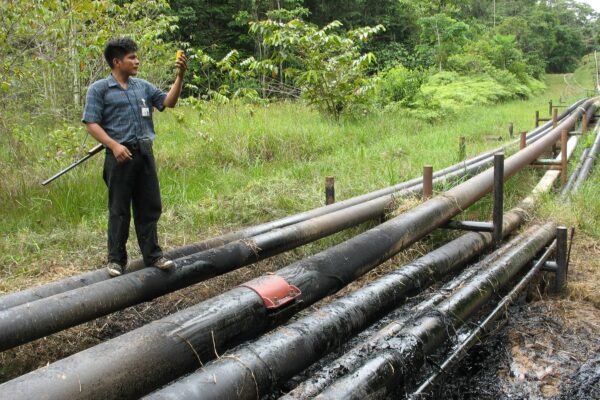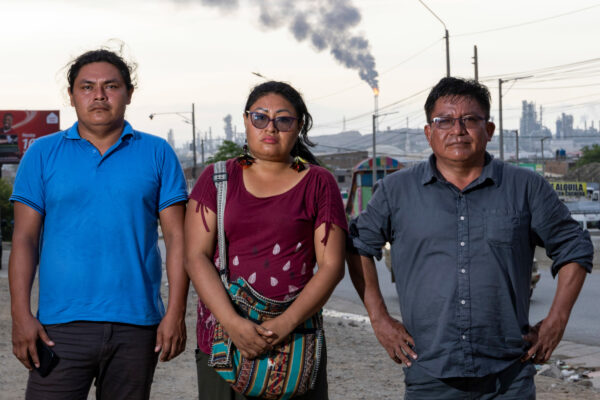Brazil, caretaker of the world’s largest rain forest, is about to enact broad new regulations that opponents say could loosen restrictions on Amazon deforestation and increase the country’s greenhouse gas emissions.
The move comes after two years of often roiling debates and dozens of hearings across the country over how to update a 1965 law that was designed to control slash-and-burn agriculture. Backers say the proposed Forest Code bill, which is expected to be signed into law early next year, would protect the Amazon while easing the regulatory burden on small farmers.
Brazil, a leader on climate change and host of next June’s U.N. Earth Summit in Rio de Janeiro, is charting a climate strategy shaped by domestic politics and economic concerns that sometimes appears at odds with its international environmental rhetoric. Such domestic pressures — clear also in increasingly influential developing countries such as China and India — have created uncertainty over how the world will curb its carbon output by the end of the decade, even as negotiators gear up to forge a new global warming pact by 2015.
“It sends a mixed message because Brazil has positioned itself as a country that’s committed itself to saving the forest cover to the benefit of the world,” said Christian Poirier, Brazil program director for Amazon Watch. “The new forest code flouts all that.”
Proponents say it is an improvement over the 1965 law, which requires landholders in the Amazon to have a forest cover over 80 percent of their land. That law has been strengthened over time, and its critics say its myriad rules are hard to understand and routinely ignored.
“The current forest code is not working at all,” said Marcos Jank, head of the sugar cane trade group UNICA. “It has not been respected. It’s extremely confusing because the forest code has changed many times in our history.”
Under a Brazilian Senate proposal approved earlier this month, farmers would still have to set aside the same amount of their land for forest. But various loopholes, environmentalists warn, would permit farmers in some states to reduce the amount of land covered by trees. Farmers also would be able to reforest as much as 50 percent of illegally denuded areas with exotic species, rather than native trees, and the overhaul would require farmers to restore only about half of the 212,000 square miles — an area the size of France — they would have been required to restore under the current law.
The code also would do away with restrictions on the clearing of trees from riverbanks and hillsides, by measuring buffer regions based on river flows during the dry season rather than the rainy season, while shielding farmers in the Amazon with up to 1,087 acres of land from fines and other legal penalties for having deforested before July 2008.
Supporters of the bill say it would make it easier for farmers to comply while creating a series of incentives that, in time, would curb deforestation.
“You will take that farmer and bring him into the law,” said Andre Nassar, director of the Institute for International Trade Negotiations, a Sao Paulo-based group that is sponsored by the agricultural industry. “And then that farmer probably will not continue to carry out that illegal deforestation.”
Nassar said that if the government adequately registers farms and enforces the code, illegal clear-cutting will be reduced. “Not in the short-term future,” he said. “But if we go five years ahead in the future, the deforestation will be less because you’re regularizing the farmers who are now deforesting illegally.”
Environmentalists say that the bill would lead to more soil erosion, damaging forests, and send a message to those who have flouted the law that they will not be punished.
“They would think another amnesty would come,” said Claudio Maretti, who leads the Living Amazon Initiative for World Wildlife Fund.
Deforestation accounts for about 15 percent of worldwide greenhouse gas emissions, but in several developing countries such as Brazil and Indonesia, it’s the single largest driver of emissions. Trees absorb carbon from the atmosphere and store it, releasing it when they are burned.
Brazil has pledged that by 2020 it will cut its emissions by as much as 38.9 percent from projected levels. Its officials aim to meet this goal mainly by curbing the deforestation that took off in the 1970s when a military government offered land and credit to farmers willing to venture into the wild.
Recently, the news has been good: On Dec. 5, the government reported its lowest annual level of Amazon deforestation since satellite tracking began, with 2,409 square miles illegally cut down from August 2010 until the end of July. That’s an area equivalent to the state of Delaware, but a far smaller chunk of forest than earlier in the decade.
The next day, the Senate approved the new forest code despite opposition from environmentalists who had been fighting it as it went from a proposal hatched in rural meeting halls to a far-reaching rewrite in the halls of the National Congress. Sylvio Costa, director of Congress in Focus, a watchdog in the capital, noted that it was pushed through by an agro-friendly legislature in which roughly 40 percent of the members are farmers.
“I think this discussion in the Congress was extremely influenced by these people,” said Costa. “They are very powerful. And in a Congress with many political parties, the leaders with the influence are farmers.”
The loudest advocates of scrapping land regulations came from the so-called Ruralista bloc led by Sen. Katia Abreu, who also heads the National Confederation of Agriculture. She argued that debate over agricultural production had been hijacked by radical environmentalists and that a new, more farm-friendly land-use law was needed to help Brazil, already the world’s third-largest exporter of foodstuffs, compete with the United States, Europe and Argentina.
Luis Antonio Correia de Carvalho, special adviser to the Brazilian Ministry of Environment, said President Dilma Rousseff would sign the Senate version of the bill because it strikes a middle ground. Brazil is on track to absorb as much carbon as it emits by 2015, he said, so the forest-law revisions would not undercut its climate goals.
“I’d say there are two extremes,” Carvalho said, adding that the latest version of the bill would neither bankrupt farmers nor threaten the forest. “No one is asking for new deforestation.”
Doug Boucher, who directs the Tropical Forest and Climate Initiative at the Union of Concerned Scientists, described the code as “a big test” for Rousseff, who vowed during her presidential campaign last year to resist anything that would ease deforestation. Noting that both the soy and cattle industries had imposed moratoriums on clearing forests in the past five years, Boucher said he believed there was enough public support for the Amazon to keep Brazil from backtracking.
In the meantime, however, several of the international politicians who have praised Brazil for its work are watching the legislation nervously. Connie Hedegaard, European commissioner for climate action, said the Brazilian forest debate “just shows how incredibly difficult it is” for countries to curb their emissions, “but it also tells me why it makes sense to fight for global rules.”













